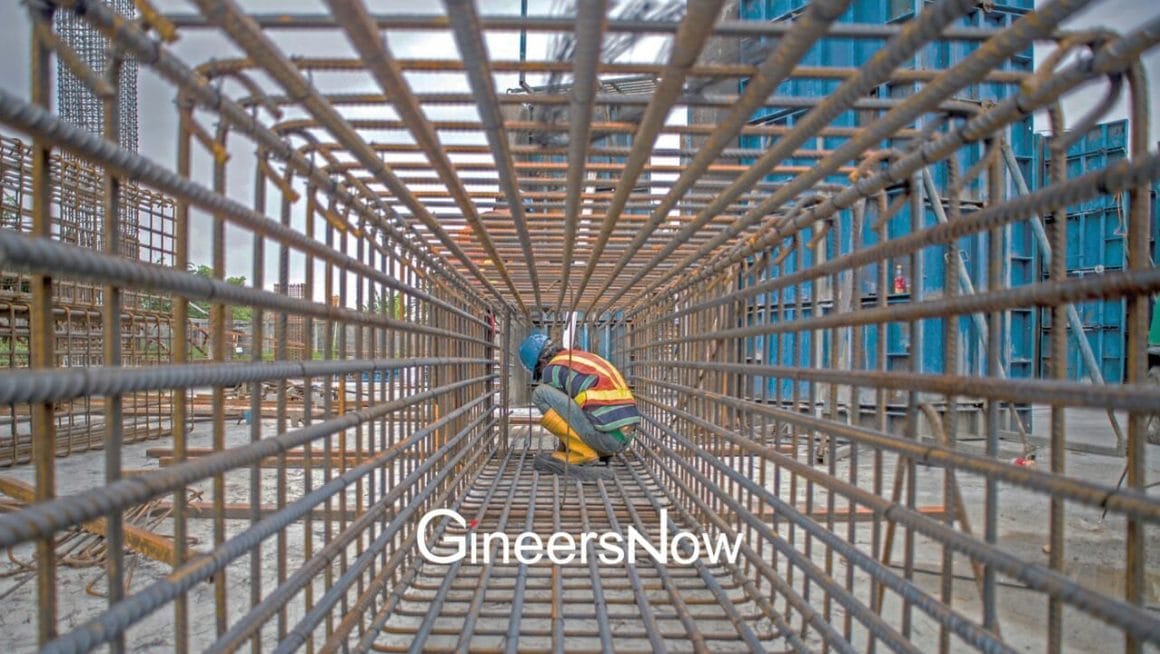Civil engineering is one of the most popular courses in the Philippines. It is a five-year course that covers the basics of engineering, mathematics, and physics. The essential subjects in a civil engineering course are statics, dynamics, the strength of materials, hydraulics, and surveying. If you are planning to take up civil engineering course in the Philippines, make sure to enroll in a school that offers these subjects.
If you want to study civil engineering in the Philippines, there are a few essential subjects you will need to take. These include mathematics, physics, chemistry, and computer science. You will also need to complete a thesis or research project.
In the Philippines, a civil engineering course typically lasts for five years and covers a broad range of topics. The essential subjects in a civil engineering course in the Philippines include mathematics, physics, chemistry, mechanics, and hydraulics. Other important subjects include geology, surveying, and construction management. A civil engineering course also covers the principles of environmental engineering and transportation engineering.

What are the Essential Topics in a Civil Engineering Course in the Philippines?
If you want to know the description of important subjects in a civil engineering degree in the Philippines, read this article.
| TECHNICAL COURSES BSCE | Total No. of Units |
| A. Mathematics | 26 |
| B. Natural/Physical Sciences | 12 |
| C. Basic Engineering Sciences | 21 |
| D. Allied Courses | 6 |
| E. Professional Course | 82 |
| Sub- Total | 147 |
| NON- TECHNICAL COURSES BSCE | Total No. of Units |
| A. Social Sciences | 12 |
| B. Humanities | 9 |
| C. Languages | 15 |
| D. Life and Works of Rizal | 3 |
| E. Physical Education | 8 |
| F. NSTP | 6 |
| Sub-Total | 53 |
| GRAND TOTAL | 200 |

| 1st Year Subjects – 1st Semester | Units |
| College Algebra | 3 |
| Plane and Spherical Trigonometry | 3 |
| Gen. Chemistry | 4 |
| Engineering Drawing | 1 |
| English 1 | 3 |
| Pilipino 1 | 3 |
| PE 1 | 2 |
| Total | 19 |

| 1st Year Subjects – 2nd Semester | Units |
| Advanced Algebra | 2 |
| Analytic Geometry | 2 |
| Solid Mensuration | 2 |
| English 2 | 3 |
| Pilipino 2 | 3 |
| Humanities 1 | 3 |
| Physics 1 | 4 |
| PE 2 | 2 |
| Total | 21 |

| 2nd Year Subjects – 1st Semester | Units |
| Differential Calculus | 4 |
| Physics 2 | 4 |
| English 3 (Technical Communication) | 3 |
| Humanities 2 | 3 |
| Social Science 1 | 3 |
| Computer | |
| Fundamentals and Programming | 2 |
| PE 3 | 2 |
| NSTP 1 | 3 |
| Total | 24 |

| 2nd Year Subjects – 2nd Semester | Units |
| Integral Calculus | 4 |
| Probability & Statistics | 3 |
| Basic Electrical Engineering | 3 |
| Humanities 3 | 3 |
| Social Science 2 | 3 |
| Life and Works of Rizal | 3 |
| PE 4 | 2 |
| NSTP 2 | 3 |
| Total | 24 |

| 3rd Year Subjects – 1st Semester | Units |
| Differential Equations | 3 |
| Statics of Rigid Bodies | 3 |
| Basic Mechanical Engineering | 3 |
| Surveying 1 | 4 |
| Social Science 3 | 3 |
| Engineering Economy | 3 |
| Total | 19 |

| 3rd Year Subjects – 2nd Semester | Units |
| Advanced Engineering Mathematics for CE | 3 |
| Dynamics of Rigid Bodies | 2 |
| Mechanics of Deformable Bodies | 3 |
| Surveying 2 | 4 |
| Environmental Engineering | 2 |
| Safety Management | 1 |
| Social Science 4 | 3 |
| Engineering Management | 3 |
| Total | 21 |

| 4th Year Subjects – 1st Semester | Units |
| Structural Theory 1 | 4 |
| Geotechnical Engineering 1 (Soil Mechanics ) | 4 |
| Mechanics of Fluids | 3 |
| Building Design 1 | 2 |
| Highway Engineering | 3 |
| Construction Materials & Testing | 3 |
| Total | 21 |

| 4th Year Subjects – 2nd Semester | Units |
| Structural Theory 2 | 4 |
| Structural Design 1 (Reinforced Concrete) | 4 |
| Hydraulics | 3 |
| Hydrology | 3 |
| Building Design 2 | 2 |
| Computer-Aided Drafting | 1 |
| Total | 17 |

| 5th Year Subjects – 1st Semester | Units |
| Construction Method & Project Management | 4 |
| Geotechnical Engineering 2 (Foundation Engineering) | 4 |
| Transportation Engineering | 3 |
| Structural Design 2 (Steel & Timber) | 4 |
| Civil Engineering Project | 3 |
| Total | 18 |

| 5th Year Subjects – 2nd Semester | Units |
| Water Resources Engineering | 3 |
| CE Laws, Contracts, Specification & Ethics | 3 |
| Technical Elective 1 | 3 |
| Technical Elective 2 | 3 |
| Technical Elective 3 | 3 |
| Technical Electric 4 | 3 |
| Total | 18 |

What Is Civil Engineering?
A civil engineering course in the Philippines is a type of engineering that deals with the design, construction, and maintenance of public and private works such as bridges, roads, dams, and buildings. It is a broad field that covers many specialties, such as environmental engineering, structural engineering, transportation engineering, and geotechnical engineering.
Most civil engineering programs include courses in mathematics, physics, mechanics, materials science, and computer science. In addition to classroom learning, many programs include laboratory work and field trips. Some programs also offer cooperative education experiences in which students alternate semesters of study with periods of paid work in the industry.

The Different Types Of Civil Engineering Degrees.
If you’re interested in a career in civil engineering, you’ll need to complete a civil engineering course in the Philippines at an accredited university. There are many different types of civil engineering courses available, so it’s important to choose the one that best fits your interests and career goals.
The most common type of civil engineering course in the Philippines is the Bachelor of Science in Civil Engineering (BSCE). This four-year program provides students with the fundamental knowledge and skills necessary to become successful civil engineers.
Another popular type of civil engineering course in the Philippines is the Master of Science in Civil Engineering (MSCE). This two-year program builds on the BSCE by providing advanced training in specific areas of interest, such as structural engineering or transportation engineering.
For those who want to specialize in a particular area of civil engineering, there are also many specialized courses available.

What You Can Expect To Learn In A Civil Engineering Degree Course
If you’re planning on enrolling in a civil engineering course in the Philippines, you may be wondering what exactly you’ll be learning. Here’s a brief overview of some of the topics you can expect to cover:
- The basics of designing and constructing various types of infrastructure, including bridges, roads, and buildings.
- How to analyze and solve complex engineering problems.
- The physics behind civil engineering concepts like fluid mechanics and structural analysis.
- How to use computers and other technology to assist in your work.

Pros And Cons Of Studying Civil Engineering In The Philippines
Civil engineering is a professional engineering discipline that deals with the design, construction, and maintenance of the physical and naturally built environment, including public works such as roads, bridges, canals, dams, airports, sewerage systems, pipelines, and railways.
Civil engineering is a very broad field that offers many specializations. Some of the more popular subdisciplines include structural engineering, environmental engineering, geotechnical engineering, transportation engineering, and water resources engineering. It is important to do your research to see which area of civil engineering is the best fit for you before you commit to a program.
There are many advantages to pursuing a civil engineering degree. First and foremost, it is a highly respected profession that offers good job security. In addition, civil engineers often have the opportunity to work on large-scale projects that can have a profound impact on society.

What Are The Advantages Of Studying A Civil Engineering Course In The Philippines
There are many advantages to studying a civil engineering course in the Philippines.
Strong foundation in Mathematics and Sciences
It provides students with a strong foundation in mathematics and physics, which is essential for success in this field.
Practical experience
Civil engineering courses in the Philippines offer practical experience through work placements or internships, which can lead to full-time employment after graduation.
High demand
Civil engineers are in high demand all over the world due to the increasing need for infrastructure development.
Design and structure
It can give them a strong understanding of how to design and construct various types of structures. This is essential knowledge for any engineer, as it can be used in a wide range of industries.
Environment
Civil engineering courses in the Philippines also teach students about environmental issues and how to minimize the impact of construction projects on the environment. This is an important skill to have in today’s world, where sustainability is becoming increasingly important.
Practical experience
Civil engineering courses in the Philippines also offer students the opportunity to gain practical experience through internships or work placements. This hands-on experience can be invaluable in helping students to secure employment after graduation.

What Are The Disadvantages Of Studying A Civil Engineering Course In The Philippines
Civil engineering is a very challenging and demanding profession. It requires a lot of hard work, dedication, and commitment. There are many disadvantages of studying civil engineering.
Time-consuming
Civil engineering course in the Philippines is a very time-consuming and expensive course.
Difficult and competitive
Civil engineering course in the Philippines is a very difficult and competitive field.
Working environment
The working conditions of civil engineers are often very challenging and dangerous.
Long hours
Civil engineers often have to work long hours and in shifts. Lastly, civil engineering is a highly stressful profession.
Pressure
Civil engineering students are mostly pressured in college because of the heavy workload and competitive nature of the course. Civil engineering students have to work hard in order to succeed in their courses and have a bright future ahead.

How A Civil Engineering Course Can Change Your Life
A civil engineering course in the Philippines can change your life by giving you the skills to design and build the infrastructure that keeps our society running.
You will learn how to use math and physics to solve real-world problems, and you will gain a deep understanding of how the built environment works.
The knowledge and skills you acquire in a civil engineering course will prepare you for a career in this exciting and important field.

The Role Of Civil Engineers In The Philippines
In the Philippines, civil engineers play a vital role in the country’s development. They are responsible for the design, construction, and maintenance of infrastructure projects such as bridges, roads, and buildings.
Without civil engineers, the Philippines would not be able to keep up with the demands of its rapidly growing population. The country’s infrastructure is already strained and in need of improvement. Civil engineers are working to ensure that the Philippines can handle future growth.
The work of civil engineers is essential to the quality of life of everyone in the Philippines. They help to make sure that our infrastructure is safe and efficient. With their help, we can continue to develop as a nation and provide a better life for all Filipinos.

Why A Civil Engineering Course Is Important?
If you are looking for a challenging and rewarding career, then you should consider civil engineering. This field of study is important because it deals with the design, construction and maintenance of our physical infrastructures, such as bridges, roads, and buildings. It also encompasses environmental engineering, which manages pollution and protects our natural resources.
A civil engineering course in the Philippines will give you the skills and knowledge to pursue a successful career in this field. You will learn about structural analysis, materials science, geotechnical engineering, and hydraulics. In addition, you will gain practical experience through laboratory work and field trips.
A degree in civil engineering can lead to many different job opportunities. You could work in the public sector on large-scale projects such as railways or airports. Alternatively, you could enter the private sector and work for a consulting firm or construction company.

The Future of Civil Engineering
As the world progresses, so does the field of civil engineering. New technology and methods are constantly being developed to make the construction and maintenance of infrastructure easier and more efficient. Here are a few things that are likely to shape the future of civil engineering:
1. Increased use of prefabricated materials:
Prefabricated materials are becoming increasingly popular in the construction industry as they can be easily transported and assembled on site. This means that civil engineers will need to be familiar with a wider range of materials and how to work with them.
2. Improved analysis and simulation tools:
With the development of better analysis and simulation tools, civil engineers will be able to design more complex structures with greater accuracy. This will lead to safer and more efficient buildings and bridges.

3. Increased use of artificial intelligence and robotics:
Robotic technology is set to become more sophisticated over the next few years. This will allow civil engineers to design, analyze and build structures more efficiently.
4. More sustainable structures:
With the focus on making buildings and infrastructure more environmentally friendly, civil engineers will be responsible for designing more green buildings. This will lead to a reduction in carbon emissions and an increase in energy efficiency.
5. Improved urban planning:
The use of new software and data analysis will improve the way that civil engineers plan and design infrastructure. This will help to make better use of land, reduce traffic congestion and improve access to public services.

Takeaway: Civil Engineering Course In The Philippines
In conclusion, there are many reasons why a civil engineering course in the Philippines is a great option for students. The first reason is that civil engineering is one of the oldest and most established engineering disciplines. This means that there are plenty of opportunities for students to find employment after they graduate. The second reason is that civil engineers play a vital role in society. They are responsible for the design and construction of infrastructure such as roads, bridges, and dams, which are essential for the functioning of modern society. Finally, civil engineering courses provide students with a broad education in mathematics, physics, and chemistry, which gives them the skills they need to succeed in any number of careers.













